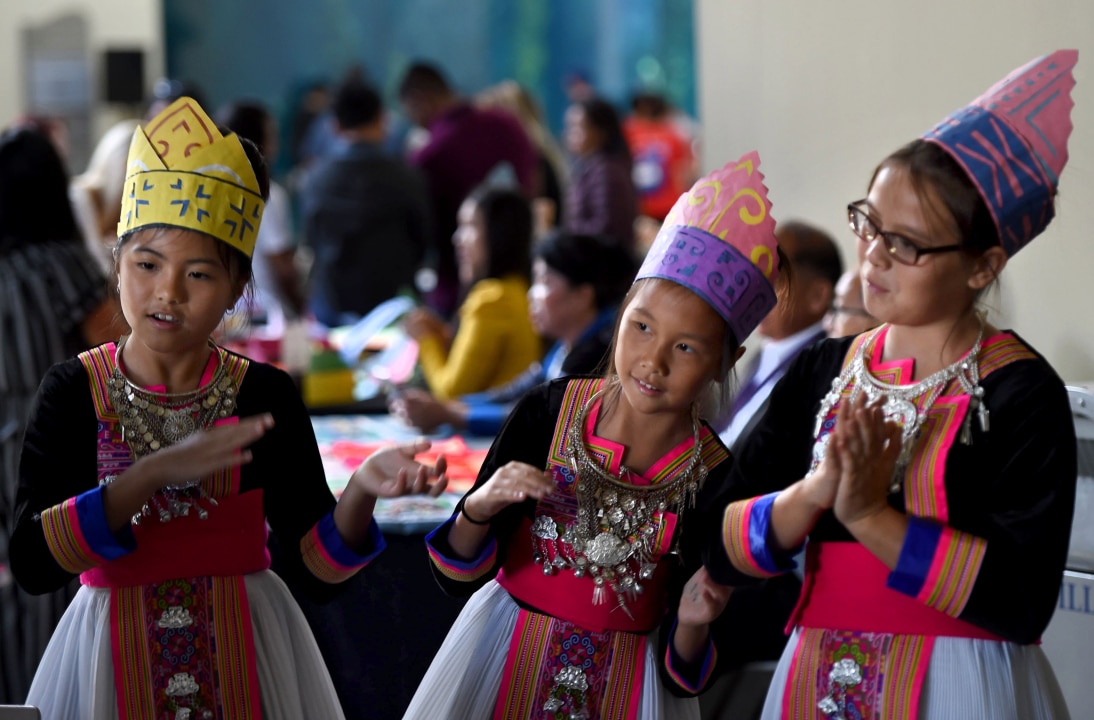California schools should tell the whole American story

One of California’s greatest strengths is its diversity, much of which is the result of waves of immigrants fleeing persecution by communist dictatorships. Chinese, Vietnamese, Cambodian, Korean, Laotian, Hmong – so many have come to California because they saw in the state, and the country that surrounded it, a land of hope. They saw something good here, something that has kept them and their children here, many for generations.
Were they wrong to come here? That seems to be the message of the state-developed curriculum that will soon be found in California classrooms, and could even shape education nationwide.
California’s “Ethnic Studies Model Curriculum” just entered its final review in preparing for a spring rollout. The product of the state’s Instructional Quality Commission, the curriculum’s purpose is to “build the capacity for every young Californian to develop a social consciousness.” In service of this laudable goal, however, the curriculum presents a portrait of America as a racist country in which ethnic minorities cannot possibly succeed. It needs serious revision so that students receive a full and fair depiction of America’s failings, progress, and promise.
Only public pressure can force that revision, and the window is closing fast.
The Curriculum is almost entirely focused on America’s sins. From slavery to forcible deportation to genocide, it shines a light on the ugliest parts of the country’s history. Yes, every student should grapple with this history. It is only right to note its existence and condemn it. The problem is that the curriculum largely stops there, leaving out the larger lesson that Americans can and have and will continue to overcome injustice.
In every era, Americans have proven willing to examine the flaws and failures of the past. They have continued the work of building a more perfect union. To treat contemporary American society as if it is merely an extension of past injustices is to dismiss the work and lives of so many heroes. It ignores the courage and leadership of figures as Abraham Lincoln, Martin Luther King, Jr., Rosa Parks, and John Lewis, to name a few. And it ignores the historical fact that previous generations built the most successful multiethnic country in the history of the world.
The history of California is essentially that of the nation writ small. The Golden State is golden not because of the gold once found in its hills, but rather because of its history of improvement, of pushing America forward toward a future where its principles are better realized. It is no accident that so many peoples from around the world have sought refuge in its beautiful land, that so many who flee from ethnic and ideological persecution by communist dictatorships still choose California and America.
Students deserve to know that history. Without the complete picture – of terrible wrongs that have been righted, of injustices and the justice warriors who ended them, of the march onward and upward that is happening even now – then students will find it harder to bring the country to new heights. Instead, they will be inclined to tear it down, including the victories that so many fought so hard to achieve.
As it enters the final review process, the curriculum is now on the verge of approval. While the Commission that oversees it is already mulling some 200 changes, none ultimately change the underlying representation of California and America. Many make it worse. Fortunately, the public can still submit comments to ethnicstudies@cde.ca.gov through January 21. A flood of feedback from concerned citizens is the only way to force change. The most powerful comments would surely come from those who know better – those who fled truly oppressive regimes the world over for a chance to live in California.
Democratic self-government requires citizens to know the truth, which is always painted in shades of gray, with both lightness and darkness providing real contrast. We must understand the dark to appreciate the light, but to see only darkness is to be blind. The Ethnic Studies Model Curriculum will leave blind future generations unless it is profoundly changed. It must be made to reflect the light that drew so many of the weary and oppressed from the world over, creating the wonderfully diverse and vibrant state that California is today.
Surely they were not wrong to come here.
Murray Bessette, a graduate of California’s Claremont Graduate University, is Director of Academic Programs at the Victims of Communism Memorial Foundation.

